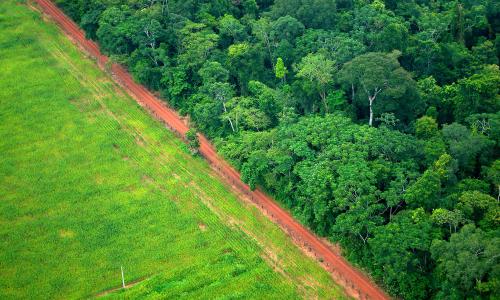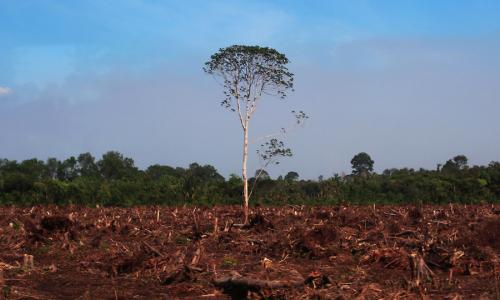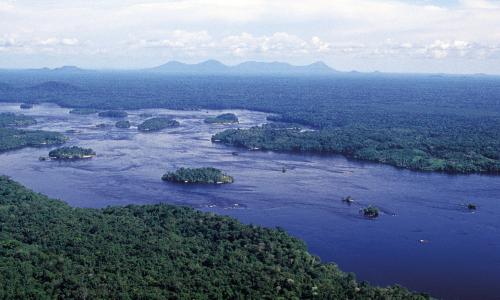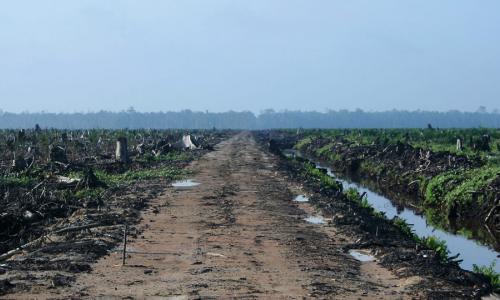Tropical deforestation accounts for about 10 percent of the world’s heat-trapping emissions — equivalent to the annual tailpipe emissions of 600 million average U.S. cars.
Reducing tropical deforestation can significantly lower global warming emissions and—together with efforts to reduce emissions from fossil fuels—plays an integral role in a comprehensive long-term solution to global warming.
To accomplish this, we need to understand the driving forces behind deforestation today and the many reasons why reducing deforestation must be a priority.
What's driving deforestation
It turns out that the bulk of tropical deforestation is currently driven by just four commodities: beef cattle, soybeans, palm oil, and wood products. Other commodities and activities play a relatively minor role.
Despite rapid expansion of the drivers of deforestation, there have been notable successes in channeling their growth in ways that no longer cause deforestation. Businesses can move to become deforestation-free, and consumers can make sure businesses know this is a priority. This strategy has produced encouraging progress on deforestation-free palm oil.
Strong policies can also play an important role. REDD+, which offers rewards to developing countries for reducing their deforestation rates, is one of the best, most affordable strategies for reducing tropical deforestation. On the demand side, the U.S. has used the Lacey Act to close the market for illegally sourced wood. However, these policies require effective implementation and enforcement in order to work.
Finally, voluntary agreements between businesses, policymakers and non-governmental organizations (NGOs), such as the Soy Moratorium in Brazil, have proved to be a promising approach.
The way we use our planet's forested ecosystems and agricultural land can have a big impact on climate change. Currently, inefficiencies in food and farming systems threaten tropical forests by increasing the demand for the drivers of deforestation. To help stop deforestation—and to reduce the heat-trapping emissions that cause global warming—we need to make smart decisions that shift consumption and land use patterns in less wasteful directions.
Biofuels can also contribute to deforestation. When land used for food or feed production is turned over to growing biofuel crops, agriculture has to expand elsewhere. The resulting emissions from clearing new land can outweigh any emissions savings from the use of biofuels. Effective biofuel policies must fully address this issue.







